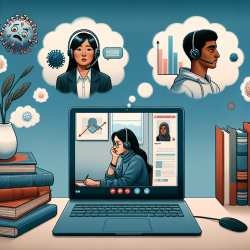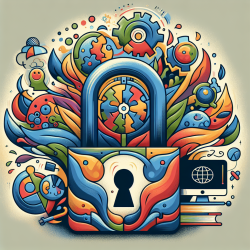The COVID-19 pandemic brought unprecedented challenges to education systems worldwide, necessitating a rapid shift to Emergency Remote Teaching (ERT). A recent study conducted in the United Arab Emirates (UAE) explored the impacts of this transition on college students, revealing significant insights that can be applied to enhance online therapy practices in educational settings.
Understanding the Impact of ERT
The study aimed to understand how the abrupt transition to ERT affected students' academic performance, psychological distress, and readiness for future work or studies. Key findings indicated that the perceived quality of courses during ERT had a profound impact on these factors. Students reported that course quality significantly influenced their academic performance and their preparedness for future endeavors.
Implications for Online Therapy
For practitioners providing online therapy services, these findings highlight the importance of maintaining high-quality course delivery. Here are some actionable strategies based on the research:
- Focus on Course Quality: Ensure that online therapy sessions are well-organized, interactive, and engaging. This can help improve students' academic performance and reduce psychological distress.
- Address Psychological Distress: The study found a link between course quality and psychological distress. Online therapists should incorporate strategies to manage stress and anxiety within their sessions.
- Enhance Readiness for Future Work: Integrate skills training and career readiness into therapy sessions to better prepare students for post-education challenges.
Encouraging Further Research
The study also suggests areas for further research that could benefit online therapy practices. Exploring the mediating role of academic performance in psychological distress and examining demographic variables such as gender and financial stability could provide deeper insights into tailoring therapy services.
Conclusion
The transition to ERT during the COVID-19 pandemic has highlighted critical areas where online therapy services can be improved. By focusing on course quality and addressing psychological distress, practitioners can enhance student outcomes and well-being. As we continue to navigate these challenging times, ongoing research will be essential in refining our approaches and ensuring effective support for students.
To read the original research paper, please follow this link: Impacts of Emergency Remote Teaching on College Students Amid COVID-19 in the UAE.










